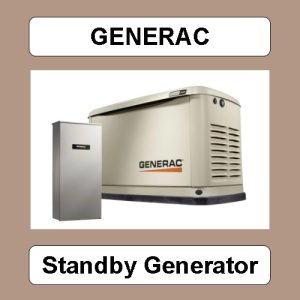Whether it’s the depth of winter or the heat of summer, it’s never a good time for a boiler to break down. Boilers can last for years if well cared for, but how do you know if yours is on its last legs? It can be hard to tell, but there are a few key indicators that it may be time to start thinking about getting a new one. In this blog post, we’ll look at the signs that your boiler is no longer doing its job properly, and what to look for if you’re in the market for a new one. We’ll discuss the necessary maintenance to keep your boiler running efficiently, and what to look for when shopping for a new boiler. With the right information, you can make a smart choice that will meet your heating needs for years to come.
1. Signs of a Faulty Boiler
Signs your boiler is failing can vary, but some of the most common ones are if the controls aren’t working properly or if it’s emitting strange noises. Older homes may also experience a reduction in their hot water and heating delivery, which indicates that the boiler isn’t working correctly. If you have any concerns about whether your boiler is operating correctly, it can be helpful to call a plumber who can inspect it for you. Failing boilers may cause more damage than simply not providing heat and hot water for extended periods of time. Therefore, it’s important to keep an eye out for signs that there may be something wrong with your boiler and to have it repaired as soon as possible.
A faulty boiler is a common problem, and it’s important to keep an eye out for any signs that your boiler may be on its last legs. One of the most common signs is a decrease in boiler efficiency: if your home takes longer than usual to heat up, this could be an indication that the boiler isn’t working as well as it should. You should also watch out for any strange noises or odors coming from the boiler. If it’s making a loud banging noise or emitting a strange odor, it could be a sign of an issue with the boiler’s internal components. If you notice any of these signs, it’s best to have a professional check them out as soon as possible.
2. Boiler Servicing and Maintenance
Boiler servicing and maintenance are essential for the longevity of your boiler. Regular servicing can help you find problems before they get worse. This can make your boiler run better and could save you money in the long run. It is recommended that you have a reliable technician service your boiler once a year to keep it running at its best. Also, you should check your boiler often for signs that it needs to be serviced, like strange noises or a higher-than-usual energy bill.
3. How do you know when you should replace your boiler?
When it comes to deciding when to replace your boiler, there are several signs that indicate that it is time for you to get a new one. If you have had your boiler for over 15 years, or if it is making strange noises, these may be signs that the boiler has reached the end of its life and needs to be replaced. Additionally, if your home’s heating is not as efficient as it used to be during the winter months, or if your gas bills have increased despite no change in usage, this may also indicate that the boiler needs replacing. To find out if you need a new boiler, you should talk to a plumber. They can look at the system and give you an estimate for a new one. If the cost of replacement is more than the cost of maintaining an old boiler, then it may be best to repair rather than replace it. But if any of these things happen, it may be time to get a new boiler so that you can keep the temperature under control and save money on your energy bills in the long run.
4. Replacing an Old Boiler
If you’ve noticed signs that your boiler is on its last legs, it may be time to consider replacing it. As a homeowner, you know how important it is to have the right system in place to heat your home. An old boiler may be less efficient and cause colder temperatures in your home. It could also be costing you more money than an upgraded model would. To check if your boiler needs replacing, look for signs such as a clicking noise coming from the unit, or a triangle rate that doesn’t tell-tale of an energy-efficient system. If these signs exist, you’ll need to replace your old boiler with a newer model that has controls that are up to date and build that can handle all of the latest technology, giving you a better chance at having a system that will effectively heat your home.
Replacing an old boiler can be an intimidating process. You will need to select a new model that is the right size and type for your home, find a professional to install it, and make sure it is correctly connected to your home’s water, gas, and electrical systems. Although it may seem like a lot of work, replacing an old boiler can save you money in the long run. Newer models are more efficient and can help you save on energy costs. A new boiler can also help you avoid repairs that could be expensive and inconvenient if you keep using an older model.

5 Is your boiler making any unusual noise?
Signs that your boiler may need to be replaced include strange noises coming from the boiler, yellow flames instead of blue ones, and a lack of heat. It’s important to keep an eye out for these signs, as they can indicate that it is time for a new boiler. If your heating system is more than a few years old, it might be time to consider a boiler replacement. Check the heating controls and make any necessary changes to cool down the system before you call for help. If there are still strange noises coming from the boiler after adjusting the settings, you should have an HVAC technician inspect it right away to test for carbon monoxide. It could be a problem with the fuel or simply that it is time for a new boiler. A gas heating system needs to be serviced regularly to make sure it is safe and working well, so even if it is making strange noises or the flames are yellow, it may be a good idea to set up an inspection.
6. Potential Benefits of a New Boiler System
There are many possible benefits to a new boiler system, such as better energy efficiency, increased safety and reliability, and lower running costs.
First, a new boiler system is designed to be more energy efficient than older models, meaning your energy bills will be lower. This system also gives you better control over the temperature and heat distribution throughout your home, so you can be comfortable in any room.
Second, a new boiler system might be more reliable than an older one because it has more safety features. These features can help reduce the risk of boiler breakdowns or other problems, ensuring that your home stays warm and your family stays safe.
Third, a new boiler system can help reduce your operating costs. Newer models are designed to be more efficient and to use less energy than their older counterparts, meaning that you could save money on energy bills in the long run.
Finally, a new boiler system can help reduce emissions. Newer models are designed to use less energy, meaning that you’ll be doing your part to help the environment by reducing your carbon footprint.
Conclusion
Heat pumps are a great option to replace an old boiler and can provide you with better heating, more savings, and a warmer home. A contractor can come to assess the situation and give you their professional opinion about what the best course of action would be. If your boiler is older than 10 years, it might be time to schedule an appointment with a contractor in order to get modern boilers that are designed for higher efficiency and a longer life span; saving as much money as possible in the long run. As boilers age, they start burning dust and freezing up more often, which means an emergency could arise if not taken care of ahead of time. Boilers usually last around 15 years before needing replacement, so if yours is older than 10 years, it’s important to plan routine maintenance visits in order to catch any telltale signs that the boiler may need replacing soon.
A boiler’s lifespan can change a lot depending on how well it is taken care of and what kind of parts are used. With the right care and attention, a boiler can last for up to 20 years. However, if your boiler has been showing signs of age, it’s best to get it checked out by a professional to see if it’s on its last legs or if it’s worth investing in to get a few more years of life out of it.
Frequently Asked Questions
What should I do if my boiler is on its last legs?
If your boiler is on its last legs, it’s important to contact a heating engineer or boiler specialist to assess the condition of the boiler. In some cases, they may be able to repair the existing boiler, however, in many cases, it may be more cost-effective to replace the boiler with a new, energy-efficient model. It’s important to consider your budget and needs when choosing a new boiler.
How often should I have my boiler serviced?
It is recommended that you have a Gas Safe-registered expert service your boiler once a year to make sure it is safe and working well.
What are the signs of a boiler that is nearing the end of its life?
1. Reduced efficiency: boilers that are nearing the end of their lives can have a lower efficiency rating and require more energy to heat the same amount of water.
2. Increased noise – As boilers age, they can become louder due to worn-out parts and components vibrating during operation.
3. Leaks: Boilers that are reaching the end of their lives may start to develop leaks in pipes, valves, or other components due to corrosion or general wear and tear.
4. Excessive cycling – If your boiler is turning on and off frequently, it could be a sign that it is nearing the end of its life due to a faulty control system or other malfunctioning components.
5. High fuel bills – A boiler that’s near the end of its life will require more fuel to heat the same amount of water, leading to higher fuel bills over time.
How can I extend the life of my boiler?
1. Have regular maintenance performed. Make sure to schedule an inspection and cleaning by a qualified technician every year.
2. Keep the area around your boiler clean and free of debris, check for any leaks or damage; and ensure that all vents are clear of obstructions.
3. Make sure the water level is correct in your boiler's pressure vessel or expansion tank.
4. Wrap any exposed pipes that go to your boiler with insulation to stop heat loss and save energy.
5. Put a carbon monoxide detector close to the boiler to let you know if there are any problems with the boiler's emissions.
6. Check the thermostat regularly to make sure it is working properly and adjust accordingly as necessary.
What can I do to keep from having to replace my boiler too soon?
1. Have your boiler serviced annually. Regular maintenance is key to keeping your boiler working efficiently and safely.
2. Make sure you are using the right size boiler for your home and that it’s properly insulated to prevent heat loss.
3. Install a thermostat and program it to keep the temperature comfortable at home while you're gone or sleeping.
4. Monitor the pressure in your system and make sure it’s kept within manufacturer guidelines.
5. Keep furniture, curtains, and carpets away from air vents and radiators to make sure air can flow freely through your home.
6. Invest in an energy-efficient model with good insulation if you need to replace an older boiler.
What are the potential risks of having an old boiler?
- Carbon monoxide poisoning is more likely to happen with an old boiler because the seals and gaskets are likely to be worn. This makes it more likely that carbon monoxide will leak out of the boiler.
- Poor energy efficiency: An old boiler can be inefficient and waste energy, leading to higher energy bills.
- Expensive repairs: Older boilers break down more often, and it can be expensive to fix or replace them.
- Risk of leaks: Worn seals and gaskets can lead to water leaks, resulting in water damage and potential mold problems.
How much should I expect to pay to replace my boiler?
The cost of replacing a boiler varies depending on the type, size, and efficiency of the system you choose. Generally speaking, a mid-efficiency boiler installation can range from $3,500 to $7,000 before labor costs are factored in. A high-efficiency boiler installation may cost up to $15,000 or more.
What kind of boiler should I buy to replace my old one?
The type of boiler you should buy to replace your old one depends on a variety of factors, such as the size of your home, the type of fuel it uses, and whether you are looking for a more energy-efficient model. It's best to talk to a qualified heating specialist like DiBacco Plumbing Heating and Cooling who can look at your needs and suggest the best solution.





